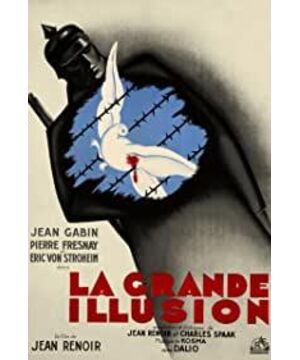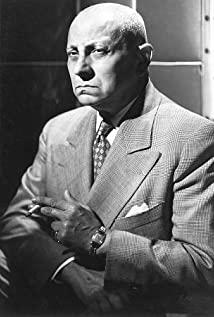At the beginning of the film, I was a little bit stunned. I couldn't tell who they were, and they made them look like a German and French family. So I had to check the synopsis to match the number. The introduction and film critics both interpreted this film as an anti-war film. They also said that when the French aristocratic officers escaped from prison, the German aristocratic officers shot and killed regardless of their existing feelings, so I thought it was now common to destroy and distort human nature. The type that expresses the theme of the anti-war, 9 points for the proposition of reaching the anti-war by destroying human nature, and 1 point for other content. In fact, this is not the case at all. This film expresses the anti-war theme by showing human nature, and anti-war is far from the only theme. If the first doctrine of Buddhism is liberation, the second doctrine is mercy, and the second doctrine is far from optional, then the first theme of this film is anti-war, the second theme is the chanting of the decline of aristocratic society, the second theme Quite important, far from negligible. The second theme was fully expressed in the interaction between the two aristocratic officers in Germany and France. Isn’t the interaction between these two people a very important part of the film? So who can deny that the main content expressed by their drama is not a very important theme in the film? The decline of the aristocracy is a proposition of the times. It is even more important and more profound than the military struggle of the First World War itself. This kind of theme is not uncommon at home and abroad. China has "Peach Blossom Fan" and Hungary has "Candle Embers", which express this very deep feeling. "Candle Embers" portrays the fall of the Austro-Hungarian Empire, and this is one of the direct results of the First World War. Therefore, the film and "Candle Embers" are both performances of different sides under the same background. The German aristocratic officers did not disregard feelings, let alone destroy humanity. He has fully taken into account the feelings of the two people and got the full understanding of each other. In order to keep the etiquette engraved in the bone marrow at all times, the German noble officer with a fractured spine had to lean over to complete the gesture of bowing his head. All actions reveal the knowledge and temperance of the nobles. Therefore, the usual introductions that only mention "anti-war movies" and "German officers are disregarded of feelings" (implying that the anti-war theme is expressed through the destruction of human nature) is a flawed and erroneous interpretation. The score of 6 in this film is the proposition of opposing war by preserving humanity, and the proposition of 4 is the internationalization of the decline of aristocratic society. The second theme is the proposition of internationalization because the upper class of aristocratic European society is an international community, and the concept of country is not always the most important consideration. The state as the most important or even the only consideration factor, that is, the rise of nationalism and the series of results it brings, is also expressed in the dialogue between the two aristocrats in Germany and France: Isn't this the legacy of the French Revolution? The reason why this anti-war movie is great is the existence of the second theme, which makes the focus very broad. big. It's hard to surpass, because winning is in the selection of talents, and latecomers can't find such a big second theme. As for the title, the scene where the German and French military officers got off the plane and invited a meal to send a wreath is a "great phantom" and irony, or a depiction of reality under the special conditions of Europe. I am still trapped.
View more about La Grande Illusion reviews











